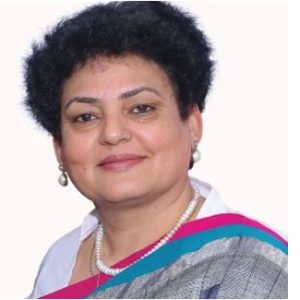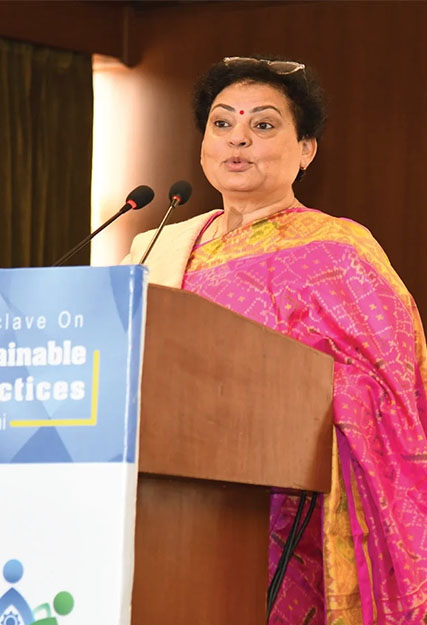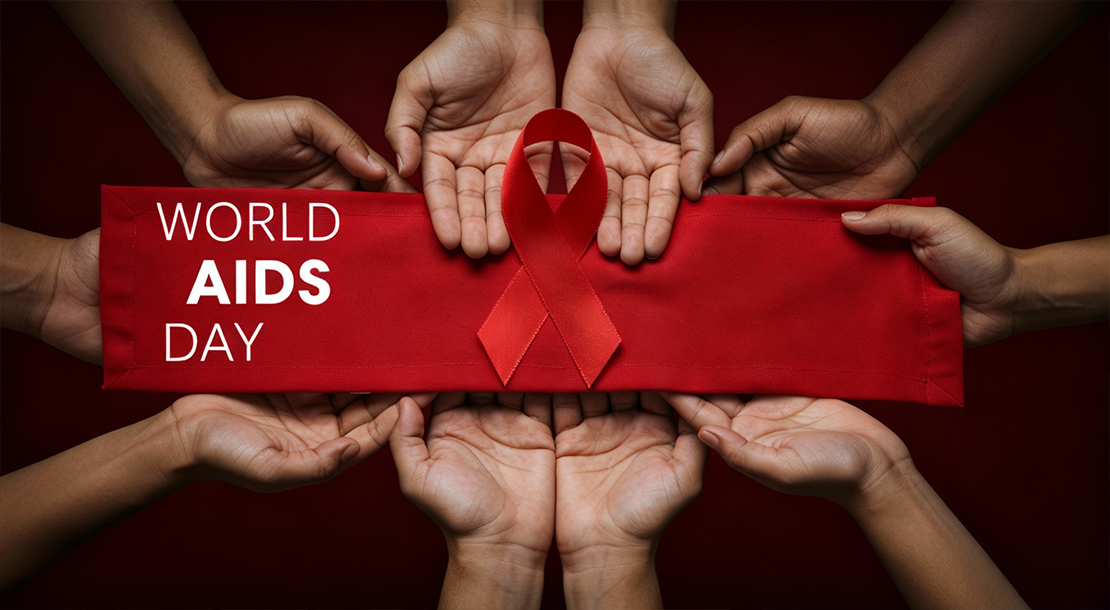
“In times to come, the representation of women in our political decision-making bodies shall play a crucial role in fostering and strengthening the democratic fabric of our nation. It shall ensure that women’s voices are duly heard and their issues are addressed.”
Excerpts from an exclusive interaction with CSR Times Team
Q1. What are the major achievements of NCW Under your leadership?
Throughout my tenure at the National Commission for Women (NCW), I have had the privilege of spearheading numerous initiatives, each aimed at transforming the landscape of support for women across the nation. Among these endeavors, one particular initiative stands out for its profound impact: the establishment of a 24×7 helpline for women. This pivotal service has not only provided essential assistance to expectant mothers, especially during the challenges of the COVID-19 pandemic, but it has also become a lifeline for women in need, ensuring that their grievances are heard and addressed around the clock.
In our fight against human trafficking, we’ve confronted harrowing tales of women deceived into perilous situations under the guise of employment opportunities. To combat this scourge, we’ve embarked on a mission to educate and engage the Central Industrial Security Force (CISF) as allies in the fight against trafficking, leveraging their expertise to safeguard women from exploitation across borders.
Believing fervently in the principle that assistance should even the last woman in need, we’ve dedicated substantial efforts to uplift denotified tribes, often among the most marginalized communities. Additionally, our collaboration with the Bureau of Police Research and Development has led to groundbreaking initiatives in gender sensitisation and forensic science training for law enforcement personnel, ensuring a more informed and empathetic response to women’s issues.
Recognising the pivotal role of financial independence in women’s empowerment, especially in rural areas, we’ve undertaken extensive educational campaigns targeting farmers, daily wage labourers, and grassroots representatives. Through these efforts, we aim to equip women with the knowledge and tools necessary to secure their financial futures.
Moreover, our commitment to holistic empowerment extends to various marginalised groups, including elderly women, homemakers, and sex workers. Through tailored capacity building programs, we strive to enhance their quality of life and expand their opportunities for self determination. In embracing technology as a tool for empowerment, we recently launched the “Her Legal Guide” mobile app, designed to educate women about their legal rights and facilitate access to justice. We have also started a program by the name of “Digital Shakti”, wherein we are planning to make women aware of cyber crimes and how to protect themselves against cyberstalking and Cyberbullying.
One of our most significant achievements lies in fostering violence- free homes in Jammu and Kashmir following the abrogation of Article 370. By creating a safe environment conducive to reporting abuse, we’ve empowered women to seek recourse through law enforcement channels with confidence and ease. Furthermore, our collaboration with Kendriya Vidyalayas has opened avenues for the holistic development of young women, nurturing their talents and aspirations for a brighter future. As we continue our journey toward gender equity and empowerment, these initiatives stand as testaments to our unwavering commitment to the welfare and dignity of every woman in our nation. Together, we strive to build a society where every woman can thrive, unencumbered by fear or inequality.
The Commission has proactively worked to create awareness around Cyber Crimes against women. In this regard, the Commission proposed changes in the Information Technology Act 2000 and Indian criminal law to make the law robust and dynamic with the advancement in the types and means of cybercrimes perpetrated against women. bosh act The Commission also reviewed the Protection of Women from Domestic Violence Act 2005. As you may be aware, the Act was legislated to minimize the cumbersome position of law, be it procedural or substantive and facilitate easy and Fastrack redressal to women. However, the Commission felt that the Act did not justify the objective with which it was legislated and lagged in implementation. In this regard, the Commission recommended various reforms in the commissioning and functioning Protection Officers, Counsellors and Service Providers.
Q2. Any specific recommendation you have made to the Government that will further strengthen the status of women in India?
The National Commission for Women is mandated to review legal and constitutional safeguards for women under section 10(1)(d) of the NCW Act, 1990. Towards this end, the Commission annually decides on the topics to be undertaken for review to formulate recommendations for amendments to the Government of India to consider the proposition.
Lately, the Commission has reviewed “Rights of Muslim Women under Muslim Personal Law”. The Commission conducted various regional consultations and National level consultations to review and analyse the legal reforms to advance the status of Muslim women and to protect the interest of Muslim women considering gender inequality and violation of their constitutional rights. The Commission recommended, amongst others, that Muslim personal law should be codified, subsuming the already existing Acts of Muslim Personal Law (Shariat) Application Act, 1937, Dissolution of Muslim Marriage Act, 1939 and Muslim Women (Protection of Rights on Divorce) Act, 1986to bring it adequately under the ambit of Article 13 of the Constitution in order to end any unambiguity in the interpretation of rights of women.
Another recommendation of the Commission has been in the Hindu Minority and Guardianship Act, 1956, to amend Section 6, suggesting that the mothers be at par with fathers as ‘Natural Guardians’. As per the current law, the father is the Natural Guardian of the child and, after him, the mother. The Commission has proposed joint rights for both mother and father. The objective is to ensure that gender equality is one of the basic principles of our Constitution, and, therefore, the father, because of a dominant personality, cannot be ascribed to have a preferential right over the mother in the matter of guardianship since both fall within the same category.
It is pertinent to mention that in view of the decision of the Hon’ble Supreme Court in Independent Thought v. Union of India regarding increasing the age of consent for married women to 18 years from 15 years, the National Commission for Women suggested that the decision should be codified in Indian Penal Code. The recommendation has been incorporated in Exception II to Section 63 of the new criminal law, i.e. Bhartiya NyaySanhita, 2023.
The Commission has proactively worked to create awareness around Cyber Crimes against women. In this regard, the Commission proposed changes in the Information Technology Act 2000 and Indian criminal law to make the law robust and dynamic with the advancement in the types and means of cybercrimes perpetrated against women.
The Commission also reviewed the Protection of Women from Domestic Violence Act 2005. As you may be aware, the Act was legislated to minimise the cumbersome position of law, be it procedural or substantive and facilitate easy and fastrack redressal to women. However, the Commission felt that the Act did not justify the objective with which it was legislated and lagged in implementation. In this regard, the Commission recommended various reforms in the commissioning and functioning Protection Officers, Counsellors and Service Providers.
Q3. How critical will women’s representation be in the parliament?
Women’s representation in the parliament denotes the crucial struggle for women’s empowerment, especially in the context of political representation. It addresses the gender disparity that has historically existed not just in the Indian Parliament but also in what has been a global issue.
Representation of women in politics is crucial because it ensures that the needs and voices of women are adequately represented in decision-making. Women political leaders have been instrumental in bringing the issues women face to the forefront of parliamentary politics, advocating for reforms, and ensuring that the interests of women are protected.
Constitutional protections, the Right to Equality under Article 14, align with our assurance of equality before the law and equal protection of the law. Further, Article 15 prohibits discrimination on the grounds of sex. Through the 73rd and 74th Constitutional Amendments, the provision for reservation of one-third of the seats for women in Panchayati Raj Institutions (PRIs) and municipal bodies was provided.
However, women’s representation in parliament had been historically low, with the number of women MPs being only 5% in the first Lok Sabha. Still, there has been significant progress through the years, as the 17th Lok Sabha saw 15% of women MPs. Realizing the need to take targeted measures to enable greater representation of women in parliamentary politics, the Government passed the Constitution (One Hundred and Sixth Amendment) Act, 2023, by which one-third of all seats are reserved for women in Lok Sabha, State Legislative Assemblies, and the Legislative Assembly of the National Capital Territory of Delhi, including those reserved for SCs and STs.
In times to come, the representation of women in our political decision- making bodies shall play a crucial role in fostering and strengthening the democratic fabric of our nation. It shall ensure that women’s voices are heard and their issues are addressed.

Q4. During your leadership, the NCW has introduced initiatives to ensure justice for women. What more remains?
The Commission has been working tirelessly to ensure justice for women victims of crimes. In this regard, the Commission has rescued victims of trafficking, acid attacks and other grave crimes and worked to provide legal, medical and institutional support to women in need. Apart from that, the Commission, through its Legal Cell, has approached the Supreme Court and challenged certain decisions passed by the High Courts which were unconstitutional, whereby the rights of women are blatantly ignored. One such case was when the National Commission for Women (NCW) had filed a Special Leave Petition (SLP) before the Hon’ble Supreme Court against the Nagpur bench of the Bombay High Court verdict, which ruled ‘skin-to skin’ contact is necessary for the offence of ‘sexual assault’ under the Protection of Children from Sexual Offenses (POCSO) Act.
The Commission, while filing the SLP, had raised concern that the impugned Order had far-reaching ramifications for women and children, exposing them to a desensitized society.
On 18 November 2021, the Hon’ble Supreme Court of India set aside the Judgment passed by the High Court of Bombay. It held that the ingredient of the offence of “sexual assault” under the POCSO Act “, sexual intent” and skin-to-skin contact in such cases, is irrelevant. The same would amount to a narrow and absurd interpretation of the statute.
The Commission has also challenged arbitrary decisions of the Punjab and Haryana High Court and Delhi High Court about the arbitrary application of the POCSO Act in cases of minor girls married as per Muslim Personal Law.
The Commission has prayed for the enforcement of the fundamental rights of Muslim women who are below the age of 18 years, guaranteed under Articles 14, 15 and 21 of the Constitution of India by seeking application of the provisions of the secular laws like Protection of Children from Sexual Offences Act, 2012 (hereinafter “POCSO Act”), the Indian Penal Code, 1860 (hereinafter “IPC”) and the Prohibition of Child Marriage Act, 2006 (hereinafter “PCM Act”) to Muslim women, who have contracted marriage before attaining the age of majority i.e., 18 years.
To ensure women’s access to justice, the Commission has collaborated with NALSA and DLSA to establish the Legal Aid Centre in the National Commission for Women. The Commission also liaised with State Commissions for Women to replicate and establish such centers in the state commissions.
It is pertinent to mention that the Commission has even worked to strengthen and train the personnel operating in the justice delivery system. In collaboration with BPR&D, the Commission has been conducting gender sensitization programs for police personnel to ensure empathy and a rational, unbiased approach towards women who report crimes. In addition, the Commission, in collaboration with Lal Bahadur Shastri National Academy of Administration (LBSNAA), has developed a standardized “Training Module on Addressing Domestic Violence”. The Commission has been proactively training Protection Officers nationwide to ensure the facilitation of easy and Fastrack redressal for victims of Domestic Violence.
Moreover, the Commission believes that rehabilitation of victims of crime is of utmost importance since justice should not only be done but also seem to be done. In this regard, in collaboration with NLU Delhi, the Commission has prepared a Scheme for the Rehabilitation of Domestic Violence Survivors to incorporate a wholesome rehabilitative approach for skill development and rehabilitation of Survivors.
Q5. Is India better positioned to take a leadership position on women’s safety?
As the National Commission for Women, we acknowledge that while India has made strides in addressing women’s safety, much work still needs to be done. While significant efforts have been made to enact legislation, raise awareness, and improve law enforcement responses to violence against women, challenges persist. Factors such as cultural attitudes, social norms, and systemic barriers continue to pose obstacles to women’s safety.
However, despite these challenges, India is positioned to take a leadership role in women’s safety. The Government has demonstrated a commitment to addressing these issues, both domestically and on the international stage. Initiatives such as Beti Bachao Beti Padhao and the Nirbhaya Fund highlight the Government’s dedication to improving women’s safety and empowerment.
Moreover, India’s growing economy and increasing global influence provide a platform to advocate for women’s rights and safety internationally. By sharing best practices, collaborating with other nations, and championing gender equality initiatives, India can play a pivotal role in advancing the cause of women’s safety globally.



















